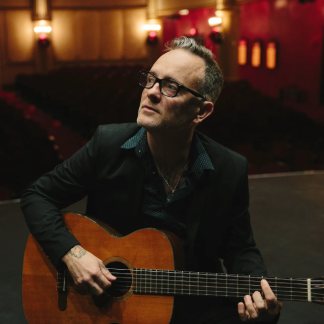Dave Hause

11-23-2024
Dave Hause's songs have always been rooted in tangible reality - of emotion, of environment, of circumstance. Since releasing his debut album, "Resolutions," in 2011, the Philadelphia-born songwriter has poured his whole heart, soul and life into his music.
That’s no different on “Drive It Like It’s Stolen,” his sixth full-length release. Its 10 songs overflow with Hause’s trademark urgency and passion, shimmering with a truth that reflects the harsh realities of life in this day and age, as well the intermittent jolts of joy that punctuate it. 2013’s second album, "Devour," for example, was a response to his divorce from his first wife, while 2019’s "Kick" saw him tackle hope, depression, global warming and a crumbling American democracy with the news that he was to become a father. Most recently, on 2021’s "Blood Harmony," Hause wrote and sang about the positive impact of having twins, and of the joy and excitement of being able to be at home with them for the first couple of years of the pandemic.
"Drive It Like It’s Stolen" is just as earnest and heartfelt, raw and real as anything he’s ever written before. Yet there’s also a subtle yet significant difference - here he’s delving into a more fictional type of storytelling to create what he terms "post-apocalyptic Americana.” That’s clear from the title of this album’s haunting and ominous opening song, “Cheap Seats (New Year’s Day, NYC, 2042)”. Set two decades in the future, it’s obviously not about anything that’s actually happened, but is still very much inspired by life. At the start of 2022, Hause was in a good place. He’d changed his diet and had maintained a strenuous workout regimen resulting in improved physical and mental health.
"Drive It Like It’s Stolen" was engineered and mixed by David Axelrod, and like Blood Harmony, produced by Will Hoge and recorded at Santi Sound in Nashville, though with a different set of musicians than that album’s all-star cast. Yet that’s not to the record’s detriment at all. On penultimate song “Tarnish”, a song about both a life lived and one still being lived - past and present coalescing in a beautiful mesh of wistful self-reflection.
“My life is getting increasingly less interesting,” he smiles. “And that’s by design. You want to be steady, you want to be at a baseball practice or taking your kids to gymnastics or whatever it is. You don’t want to necessarily be staring into the abyss all the time and trying to determine your existential weight. I don’t want my life to become fodder for songs - I want my creativity to be the fodder for songs.”
With this particular car ride, then, Hause is en route to a whole new world. Whether real or imagined or a combination of both, it’s time to buckle up for the ride.
Dave Hause's songs have always been rooted in tangible reality - of emotion, of environment, of circumstance. Since releasing his debut album, "Resolutions," in 2011, the Philadelphia-born songwriter has poured his whole heart, soul and life into his music.
That’s no different on “Drive It Like It’s Stolen,” his sixth full-length release. Its 10 songs overflow with Hause’s trademark urgency and passion, shimmering with a truth that reflects the harsh realities of life in this day and age, as well the intermittent jolts of joy that punctuate it. 2013’s second album, "Devour," for example, was a response to his divorce from his first wife, while 2019’s "Kick" saw him tackle hope, depression, global warming and a crumbling American democracy with the news that he was to become a father. Most recently, on 2021’s "Blood Harmony," Hause wrote and sang about the positive impact of having twins, and of the joy and excitement of being able to be at home with them for the first couple of years of the pandemic.
"Drive It Like It’s Stolen" is just as earnest and heartfelt, raw and real as anything he’s ever written before. Yet there’s also a subtle yet significant difference - here he’s delving into a more fictional type of storytelling to create what he terms "post-apocalyptic Americana.” That’s clear from the title of this album’s haunting and ominous opening song, “Cheap Seats (New Year’s Day, NYC, 2042)”. Set two decades in the future, it’s obviously not about anything that’s actually happened, but is still very much inspired by life. At the start of 2022, Hause was in a good place. He’d changed his diet and had maintained a strenuous workout regimen resulting in improved physical and mental health.
"Drive It Like It’s Stolen" was engineered and mixed by David Axelrod, and like Blood Harmony, produced by Will Hoge and recorded at Santi Sound in Nashville, though with a different set of musicians than that album’s all-star cast. Yet that’s not to the record’s detriment at all. On penultimate song “Tarnish”, a song about both a life lived and one still being lived - past and present coalescing in a beautiful mesh of wistful self-reflection.
“My life is getting increasingly less interesting,” he smiles. “And that’s by design. You want to be steady, you want to be at a baseball practice or taking your kids to gymnastics or whatever it is. You don’t want to necessarily be staring into the abyss all the time and trying to determine your existential weight. I don’t want my life to become fodder for songs - I want my creativity to be the fodder for songs.”
With this particular car ride, then, Hause is en route to a whole new world. Whether real or imagined or a combination of both, it’s time to buckle up for the ride.






